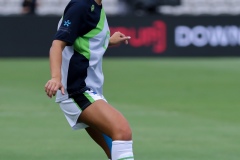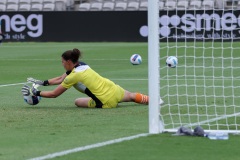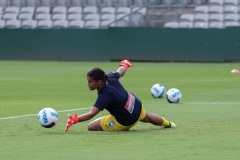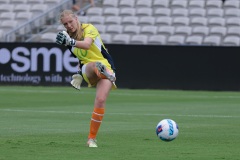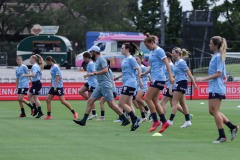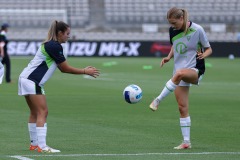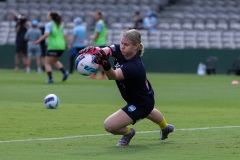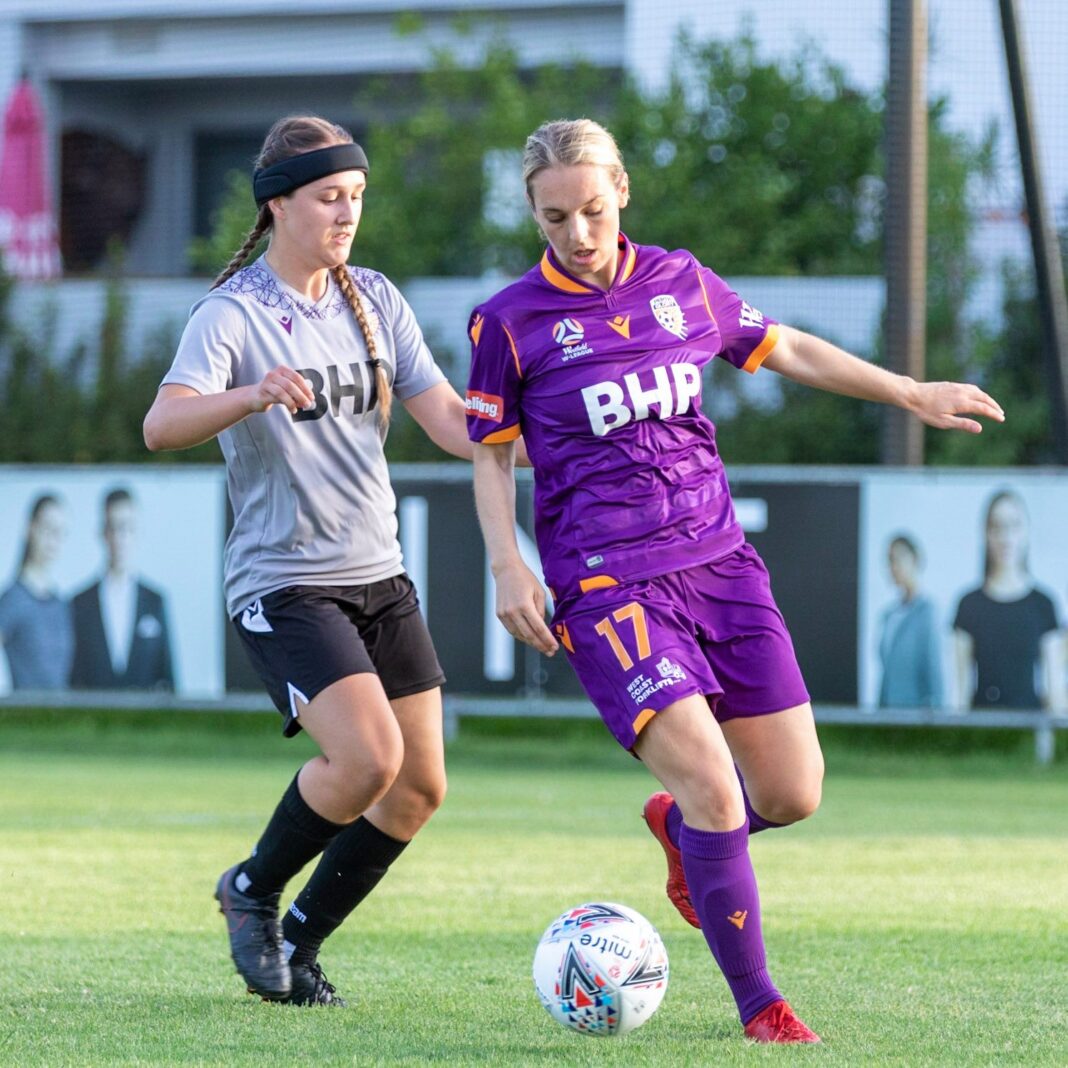

With the dust well and truly settled on the 2020/21 W-League season, perhaps now is a good time to ask how Perth Glory can get back to being a side that can compete for the top honours.
There’s no doubt COVID had a hugely detrimental effect on Glory in 2020/21, and they were forced to cope with constant fixture changes, snap lockdowns, and heavy workloads, but every other side had to work around the impacts and so the club can’t blame their season on COVID alone. It’s also not enough to point at the youth of the squad as a possible reason for the bottom place, as Sydney FC had an average squad age of 22.4 years compared to the Perth squad’s average age of 22.5. In addition, every player in Sydney was from NSW.
As late as October 2020 Glory was unsure if they would even enter a team for this season, and this lack of certainty led to four of the 2019/20 squad seeking opportunities with Brisbane Roar and Canberra. The four overseas players from last season also left the club, as did the two interstate players, so even before pre-season had commenced at least 10 new players had to be found. To add to their woes, they also had to find a new head coach when Bobby Despotovski resigned.
He had effectively walked out of the club when he wasn’t considered for the A-League Head Coach role in September, but a decision about his replacement wasn’t made until November, leaving new coach Alex Epakis with little meaningful time to get to know his squad.
The core of the squad was drawn from what remained of the 2019/20 season and to supplement this group, a group of teenagers from the NTC were brought in. They had little experience, if any, of the W-League and found it hard in making the jump from NPLW to the next level.
Local players were also invited into pre-season training camps after the NPLW had finished in October, but only two players from the top four teams in the NPLW were considered good enough to earn contracts. There were also spots found for returning Glory players from NSW and overseas.
Epakis then recruited from NSW and New Zealand, but their arrival, and that of his assistant coach, was delayed due to quarantine restrictions. This resulted in the first physical training session for players and coaches occurring on Christmas Eve.
This contrasts dramatically with the planning done by other teams who commenced their pre-season much earlier and finalised their squads well before the campaign commenced, so it was hardly surprising the season was a struggle, but it could be argued the lack of a clear plan around squad development in previous seasons added to issues brought about by COVID.
For the first four years of the W-League, Perth Glory was run by the men’s team, but in 2012 owner Tony Sage decided that he could no longer afford to run a women’s team and, rather than lose a WA-based W-League side, Football West took up the reins, although Glory did provide financial assistance as the team retained the name Perth Glory.
Football West then handed administration and management of the side back to Perth Glory in 2015. Glory quickly moved to bring in a new coach and made the bold move of appointing Despotovski as head coach, someone with no previous experience of coaching in Women’s football. To help him, the club also brought in ex-Matilda and ex-Glory player Collette Gardiner (nee McCallum) as an assistant coach. Despotovski quickly invited local players to attend training sessions with a view to recruiting locally to supplement the mercurial Sam Kerr plus established stars Caitlin Foord and Mackenzie Arnold from the previous season. The club also welcomed back another local player when Ella Mastrantonio signed, and they secured the services of Kim Carroll with the experienced ex-Matilda moving west, as well as the well-credentialled duo of Katie Holtham and Danielle Brogan. Injuries took their toll and they lost the services of Kerr, Foord and Arnold all through injury, finishing the campaign in 8th position. At times they had to draw heavily on their squad depth, and for the last home game of the season, no less than 12 West Australians were on the matchday card, with only two internationals (Vanessa DiBernardo and Alyssa Mautz) and just one interstate player (Carroll). The team won the game, which was one of only three wins all season.
To improve the squad for the 2016/17 season the club embarked on a significant recruiting drive and there were 8 international or interstate players in the 15-player squad on game day one, marking a significant departure from the WA-based squad in the previous season. There is no doubting this worked, as the team finished 2nd in the regular season and lost the Grand Final, but any sense of continuity or working to develop local talent had vanished.
In 2017/18 they finished in 6th spot, with nearly half the squad from the 2017 GF not re-signed. Another GF appearance followed in 2018/19, and 2019/20 saw the team finish 7th. This all points to an inconsistency in squads from season to season and a lack of a clear plan for the development of local talent, with players often being dropped in favour of those from overseas or interstate in the search for a winning formula.
COVID circumstances effectively ruled out any significant overseas or interstate player recruitment and Glory were forced to recruit more local players for the 2020/21 squad. Matchday squads regularly featured 10 West Australians and in the 6-2 defeat against Sydney FC, there were no less than 12 West Aussies in the squad.
No one really knows what the squad would have looked like without COVID, but history has shown that Glory has tended to recruit from the USA and interstate rather than locally, and whilst Glory CEO Tony Pignata and coach Alex Epakis have both stated the aim of the club is to have a full team of West Australians playing in purple shirts, there currently appears to be little in the way of any concrete action from the club to make this occur.
The level of interaction between Glory and the local women’s game has been limited for several years, with Despotovski only ever spotted at local league or cup games during his first season as coach. Additionally, there were few, if any, meetings with State League or NPLW coaches to discuss ways that local clubs could assist in developing local talent, and selection to the squad from local ranks seemed to depend on tenure rather than form.
The harsh reality of the 2020/21 campaign is that the squad of mainly West Australians is not currently good enough to challenge for honours and there is an awful lot of work ahead for Epakis to turn this around.
This can’t be done without a better relationship with the NPLW clubs, and it was encouraging to see Epakis at the recent pre-season Night Series games looking at local NPLW players. Epakis and the other Glory coaches are not the only ones who need to be more involved though, as the club needs to lift its interactions with the local women’s football community to increase engagement.
Attendances during the 2020/21 season were poor, with average gates of 493 (down from 676 in 2019/20) and the last 2 home game gates saw attendance figures of just 250 and 271, which suggests only the family and friends of the players are coming to see the team. It could be argued this lack of decent home support is down to the team’s home form in the last two seasons, with only one win and one draw in that period, but the lack of buy-in from the local community is worrying as they need to generate an atmosphere to make the home venue as intimidating as possible.
So where to from here? The biggest issue is obviously the talent pool in WA, which must increase both in size and ability if Glory is to achieve their target of a WA-based side. The current over-reliance on NTC players sees young and inexperienced players having to cope with the demands of W-League football and the evidence of 2019/20 and 2020/21 suggests this is not working, and there needs to be a bigger influx of local NPLW players to compliment the youngsters.
One possible longer-term solution is to increase the number of younger players at NPLW clubs and this is something that can be controlled by Football West. When licences to be an NPLW side were issued in 2019, there was a stipulation that clubs must have junior teams and that in 2021 a U18 NPLW competition would be set up. Football West provided an exemption for the setup of junior clubs in 2020 due to COVID, which was reasonable, but the exemption for the juniors has been extended to this season and the U18’s competition delayed by at least a year. This pause in the implementation of the full NPLW structure has resulted in a lot of U18 players moving into U23 and senior squads at NPLW teams. There is an argument that if you are good enough then you are old enough, but the evidence is not supporting this with many younger players not having had sufficient time to develop fundamental skills before being thrust into competitive leagues. The lack of these technical skills brings with it a real danger that WA players could struggle to bridge the gap between NPLW and W-League for some time.
Meetings between local coaches and Perth Glory would also seem to be a way of identifying potential W-League players, especially if Epakis and his assistant return to Sydney in the offseason. Regular training camps held throughout the NPLW season would also seem to be a way to check on the suitability of players for the W-League and to help them realise just what needs to be done for them to get to W-League level.
It appears some things are moving in a positive direction though, with three players (Tash Rigby, Hana Lowry and Tijan McKenna) already being locked in for contracts next season and Epakis also signing on for another year. This provides an indication of a desire by the club to provide more certainty about their recruiting, rather than leaving it until late August or early September as they have done previously.
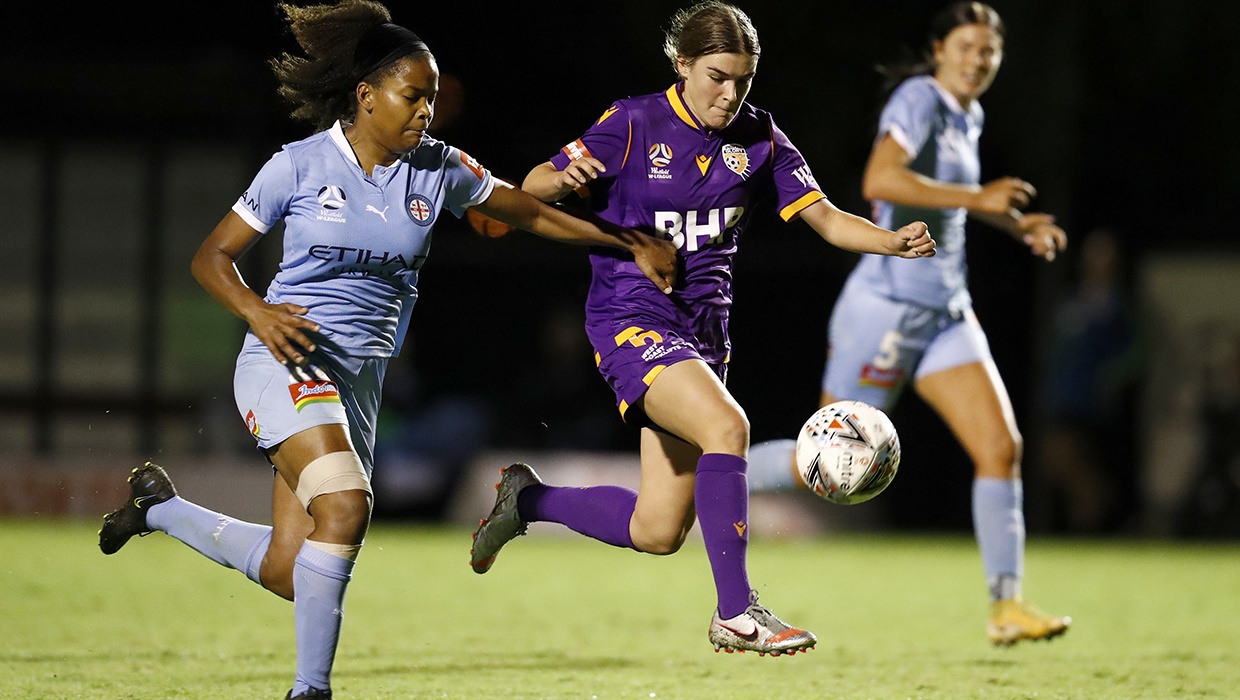
If Glory is truly determined to have a squad of West Australians represent them, then some hard work and tough decisions lie ahead, but this does present a great opportunity for ambitious local players to step up and show they can play at the highest level.
Glory can point to Adelaide United and Melbourne Victory as concrete evidence that a change in fortunes can occur if you are prepared to do the hard work and have a clear plan for the way forward.


